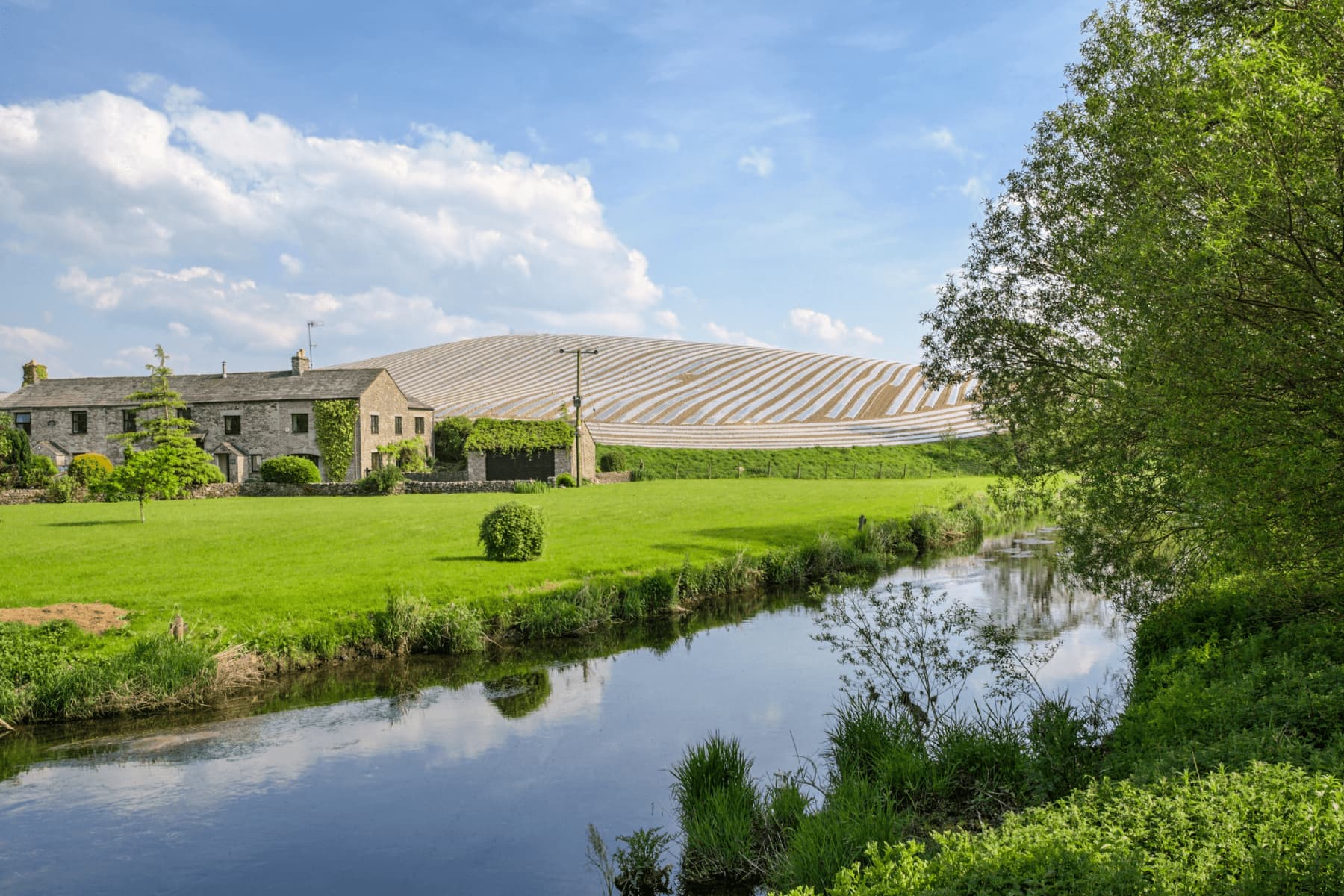The Government of Ireland is preparing to support up to 5.7 TWh of indigenously produced biomethane by 2030 with the goal of developing ~200 anaerobic digestion plants by 2030 to meet this target.
Ireland’s effort will contribute to the larger RePowerEU target of reaching 32 bcm of domestically produced biomethane by 2030.
In this article, we’ll explore the benefits of anaerobic digestion while clearing up some common misconceptions about this renewable energy production method.
Anaerobic digestion (AD) involves taking organic materials like farm waste and using bacteria to break them down in controlled environments that are free from oxygen. AD plants produce biogas, which is a mixture of methane, carbon dioxide, and small amounts of other gasses.
Biomethane is produced by filtering or “upgrading” biogas to remove impurities, leaving a gas that’s nearly identical to fossil natural gas. Biomethane can be injected into the gas grid or liquefied and used as fuel for transport. (Learn more about the difference between biogas and biomethane.)
Having anaerobic digestion and biomethane facilities in your community can bring significant benefits including generating local jobs, providing energy security and improving water quality. That’s just to name a few of benefits of anaerobic digestion!
Biomethane generates local jobs
The EU’s rural areas are critical when it comes to providing social public goods like food security, rural vitality, recreational activities, and cultural heritage.
However, many rural EU communities face issues like depopulation, lower per-capita incomes, and a lack of good employment opportunities.
Biomethane production can help revitalize rural communities by generating well-paying local jobs. A report by the European Biogas Association (EBA) points out that the biogas and biomethane industries are already responsible for more than 210,000 green jobs across the EU and together, the two sectors are expected to create about 420,000 jobs by 2030 and more than 1 million jobs by 2050.
Ireland’s 5.7 TWh target indicates the potential to generate up to 1,800 direct jobs and 4,400 indirect jobs across the rural economy in Ireland, helping to stimulate and sustain rural communities.
Biomethane supports local energy security
By using organic waste from local sources to produce biomethane, communities can reduce their reliance on imported fuels and build a more resilient local energy system.
Since biomethane is produced continuously from waste, it’s a highly stable and predictable energy source. Other renewable sources like solar or wind power are intermittent due to their reliance on weather conditions.
Also, as the Government of Ireland states in its National Biomethane Strategy, “The substantial contribution that biomethane could make to gas supply in Ireland (i.e., 5.7 TWh by 2030) will help to diversify sources of gas, improve energy security, and help shield against possible price instability or volatility in international energy markets.”

Biomethane production improves water quality
Beyond energy security y local job creation, one of the significant benefits of anaerobic digestion is the potential for water quality improvement. Many farming communities are concerned by nitrate pollution of ground and surface water.
Nitrogen from synthetic fertilisers and raw animal manure can leach into nearby water sources. When nitrate concentrations exceed allowable levels, ground water becomes unfit to drink, while nearby lakes and rivers may see significant ecological impacts.
Digestate, the byproduct of the AD process, is a rich organic fertiliser that can reduce the amount of synthetic fertilisers needed. The nitrogen contained in digestate is easier for plants to absorb than raw animal products, which reduces the amount of nitrogen leaching into water bodies. Learn more about the benefits of digestate.
Ammonia stripping is also an optional component of the biomethane upgrading process. The process transforms ammoniacal nitrogen contained in the liquid fraction of the digestate into a sustainable fertiliser that farmers can apply selectively for maximum uptake.
Finally, animal manure contains pathogens that can be hazardous to human health if they enter nearby water bodies. The high temperatures used in the AD process destroy pathogens in animal manure, reducing their presence in local watersheds.
Biomethane helps decarbonise food production
As the EU and member states work to meet the goal of net-zero emissions by 2050, communities everywhere are being tasked with finding ways to decarbonise. Producing biomethane can help meet this goal in several ways.
Methane is a greenhouse gas 80 times more potent than carbon dioxide. By capturing methane from agri-food waste and utilising it as carbon-neutral fuel, biomethane reduces the amount of methane entering the atmosphere.
Methanation technology also captures carbon dioxide from the biomethane production process and converts it into synthetic methane, another carbon-neutral fuel.
Digestate can be also used in place of carbon-intensive synthetic fertilisers, reducing farming’s carbon footprint.
Biomethane helps make farming more sustainable
Today’s farmers face challenging industry conditions. Partnering with a biomethane producer can reduce costs and provide additional revenue that can make farming more sustainable. In the process, this can help sustain rural economies that depend on farming for tax revenue and food security. Learn more about the benefits of being an AD slurry partner.
Supplying feedstock to biomethane plants can generate additional revenue for farmers, reduce slurry management costs, and cut synthetic fertiliser costs by using digestate as a low-cost source of fertiliser.
Using digestate as fertiliser can also improve soil and water quality, leading to better plant health and bigger crop yields for farmers.
Farmers who partner with a biomethane producer to build a plant on their site can also earn additional revenue from leasing or selling land. CycleØ offers farmers long-term contracts for providing feedstock and land leases, ensuring consistent income and waste-management solutions.
For farmers and communities interested in exploring the benefits of anaerobic digestion, we encourage you to connect with the experts at CycleØ to discover how biomethane production can positively impact your farm and local rural economy.